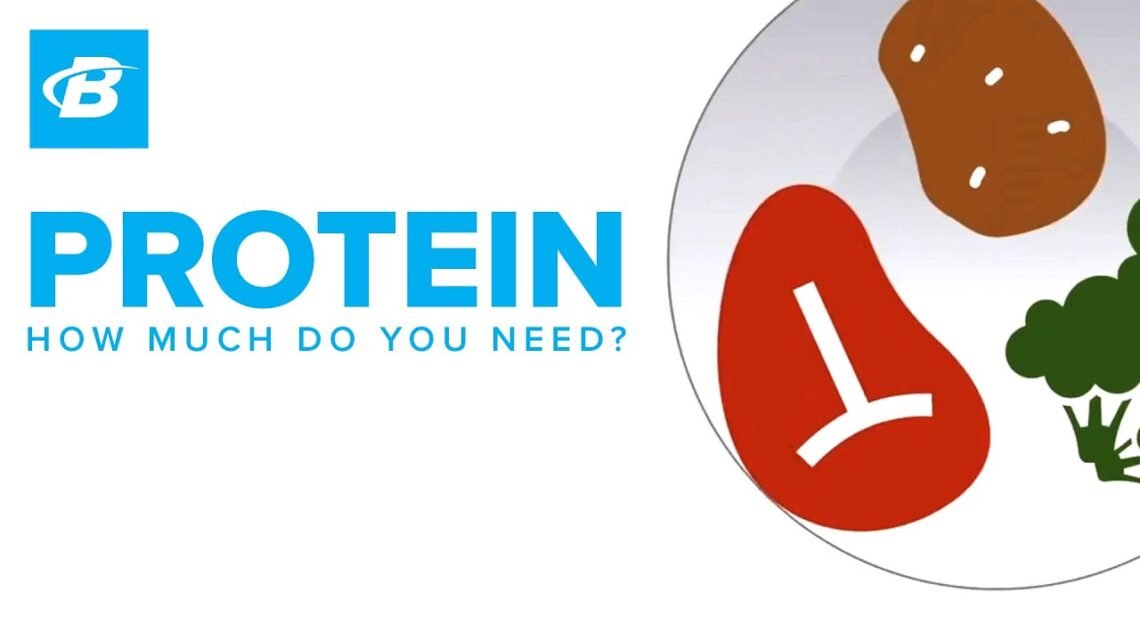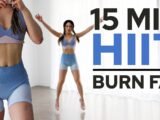
How Much Protein Do You Need? Foundations of Fitness Nutrition
December 4, 2021Protein has become an essential part of the fit life, but it’s not always clear how to use it best.
► Learn More With Our Foundations of Fitness Nutrition Course: https://bbcom.me/3h66aNR
► The Complete Guide to Losing Weight: https://bbcom.me/3x6wmNS
► Subscribe: http://bit.ly/2DK5lGD
Should you follow the governmental guidelines, or the guidelines that serious lifters or bodybuilders use? Can it be overdone? Does timing matter? And does the protein in vegetable sources “count?” Let’s dig deep into the lifter’s favorite macro.
Essential Ideas From The Video
• Dietary protein is essential for muscle growth—that much you know. But it is also essential for a wide range of other bodily processes, including supporting the immune system and hormone production.
• Protein contains 4 calories per gram, but not all proteins are the same. There are many different kinds, but they are all made of different ratios of the same 20 or 21 amino acids, linked into a large macro-molecule.
• The “quality” of a protein refers to the amounts of nine so-called “essential” amino acids, which are ones that the human body can’t produce. If it has adequate amounts of all nine, it’s a “complete protein.” Egg protein, for example, is complete. Rice protein is not.
• This doesn’t mean that rice or rice protein is useless, bad for you, or that it doesn’t “count.” It still does! But it does mean that it on its own, it’s not quite enough. This is why it’s important to get your protein from multiple sources, each with their own unique amino acid profile—but especially if you’re a vegetarian.
• Protein boosts satiety, or how full you feel, which is one reason why you shouldn’t cut it while dieting. Another is that it helps preserve lean muscle mass.
• In terms of protein amounts, the USDA’s recommended daily allowance is based more on survival than thriving. A more research-supported guideline is a minimum of 1.4 grams of protein per kilogram of body weight for everyone, or 0.6 grams per pound. For active people, athletes, or anyone lifting weights regularly, an intake closer to 2 grams per kilogram, or nearly a gram per pound of body weight, is more appropriate.
• Protein intakes beyond 1 gram per pound of body weight have been shown to be safe, but may not do much more to help justify the cost, expense, and possible stomachaches. Plus, past a certain point, each gram of protein you’re taking in also means you’ll have less room on your plate, and in your stomach, for nutrient-rich plants and other foods.
• If you’re only going to count one macronutrient in your diet, make it protein. Even just doing this for a month can help you know what 20-40 grams look like, and to ensure you’re eating as much as you should.
• The existing research indicates that timing of your protein matters less than just getting enough total protein in a day. However, if you’re aiming for a higher standard than normal, eating it all in a meal or two consistently is going to be near impossible. A better approach is at least three solid meals, plus 1-2 protein-rich snacks.
• Per meal, you should take in a minimum of 20 grams of protein to take advantage of its muscle and training-boosting properties. Think more like 30 grams if you’re highly active. The upper end is around 40 grams. Any higher than that, and you’re talking about a seriously large meal.
00:00 – Intro
01:02 – What Doe Protein Do?
03:20 – How Much Protein Do You Need?
06:43 – When Should I Consume Protein?
08:38 – Best Sources of Protein?
10:26 – Protein Isn’t Free
=============================================
Follow Us
► YouTube: http://bit.ly/1RSJFa4
► Facebook: http://on.fb.me/1lomhpr
► Instagram: http://bit.ly/1LzBxab
► Twitter: http://bit.ly/1RSJQlL
► Google+: http://bit.ly/1NRe8qu
► Pinterest: http://bit.ly/1OOZgY4
► Spotify: http://spoti.fi/1NRebm0
We are Bodybuilding.com. Your transformation is our passion. We are your personal trainer, your nutritionist, your supplement expert, your lifting partner, your support group. We provide the technology, tools and products you need to burn fat, build muscle and become your best self.



